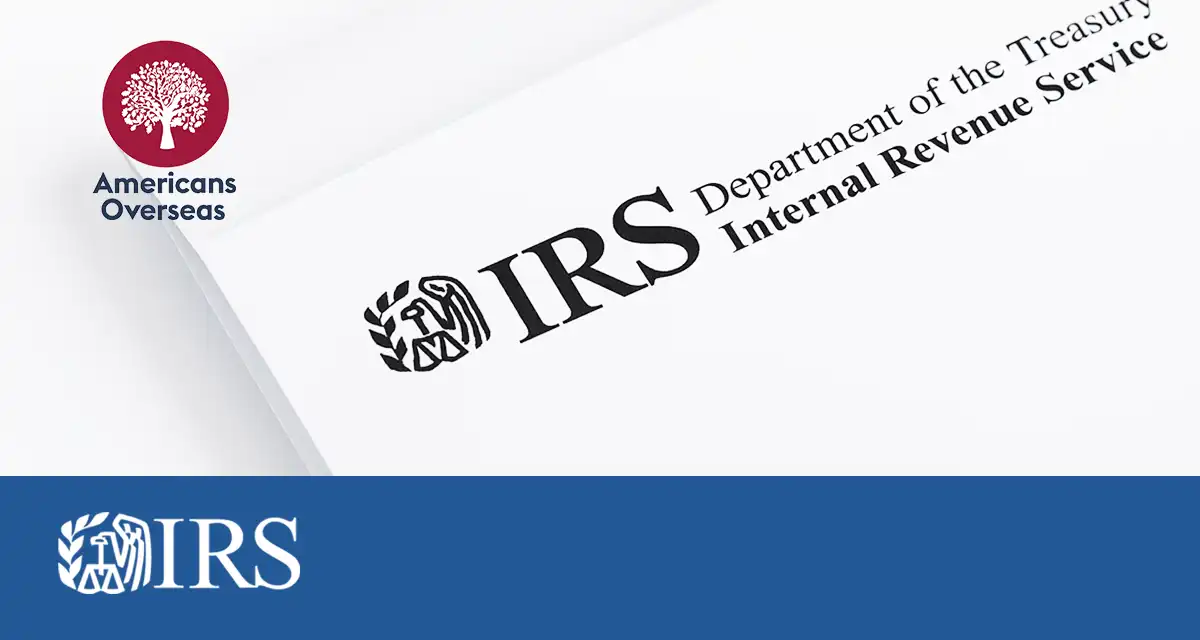
Frankfurter Allgemeine Zeitung reports: Customers with an American background are expensive for banks

America-related customers are expensive for banks. In Europe the deposit is often terminated. What securities may investors have, who sometimes happen to be Americans?
Investment funds are often authorized throughout Europe, but rarely in the United States. This leads to so many difficulties that German major banks no longer offer a self-managed securities deposit account to investors with a connection to America.
Commerzbank and clients with an American background
“As a bank, we already carry a fair amount of regulatory costs,” says Michael Kohl, division manager for asset management at Commerzbank. “At reasonable cost, we cannot create the conditions to sell funds even to people with a US-American background.”
With these words, Kohl in conversation with the Frankfurter Allgemeine Zeitung sheds some light. For when Commerzbank announced to several thousand private customers the closure of their securities deposit at the end of the year in a letter in May, the echo was loud and often the lack of understanding was high.
Securities accounts and clients with an American background
Coming back to securities accounts and clients with an American background: In May 2018, readers of Frankfurter Allgemeine Zeitung with very different backgrounds had reported on their impending expulsion as a Commerzbank customer:
An American living for 45 years in Bonn, for example, a San Francisco-born, Frankfurt-raised teenager and the daughter of an American hotel owner living in Germany.
“Only now?” was the reaction of some readers who knew that persons with American tax liabilities should report their foreign accounts to the US tax authorities as early as 2010.
Those who have lived and worked in America have often painfully learned that German banks are compelled to report whether they have customers with tax obligations in the United States since July 2014.
Even insurers like Zurich have tried to terminate insurance for that reason, says a manager who had been sent by his employer to the United States for a couple of months.
Accidental Americans: clients with an American background
There have also been reactions from the Netherlands. From there, a self-help group for clients with an American background (“Accidental Americans”) has started to raise the issue.
This term refers to people who were born in the United States during a short stay of their parents or have parents of whom one is an American.
In both cases, the children are automatically American citizens – even if they have never lived in America. American citizenship makes them taxable in America, regardless of where they live.
“Filing taxes in the United States is complicated and complex. Making errors in a tax return is often worse than not filing tax returns,” says Daan Durlacher.
Because he himself knew nothing of his tax obligations as an “accidental American” and then almost suffered a nervous breakdown in his fight with the IRS, Durlacher now helps to connect Americans living in Europe with tax advisers.
“It’s almost impossible to file a tax return in America without professional help,” says Durlacher.
It can also be expensive for banks that have American customers. As early as 2008, many Swiss banks were the first to throw out American customers when these were accused of tax evasion.
Factca, BZST and clients with an American background
In 2010, the United States passed the Fatca law, which requires citizens with American tax obligations to report their foreign bank accounts to the US tax authorities. For the implementation of the law the Americans have conferred banks abroad with duties.
“We have to report, for example, the account or custody account balances, interest, dividends, and other income of customers, who are taxable in the United States, to the German Central Tax Office, “ Bundeszentralamt für Steuern” (BZSt),” according to the German savings banks. The ‘BZSt’ then passes the information on to the American tax authorities.
To detect whether someone has an American connection, German credit institutions examined their customers based on their place of birth or their postal address. Another indicator raising the attention of their IT systems is a US telephone number or a standing order in favor of an American account.
These requirements do not prevent German banks from providing an account for or giving credit to American customers.
“But we can no longer offer the securities advisory business because the exchange with the US tax authorities is too complex and the ‘Securities and Exchange Commission’ s (SEC) regulatory standards are difficult to control,” says Kohl.
As head of asset management at Commerzbank, however, he points to a – albeit more expensive – way out. Before Commerzbank terminates the deposit at the end of the year, American customers can arrange for their assets to be managed without violating any American standards – for a fee, of course.
This way they transfer the decision as to which securities are bought or sold to the asset managers of Commerzbank.
At first glance, it does not seem very difficult to put together an “American-style securities depository” for American nationals abroad.
“The legislation allows us a significantly limited securities business (exclusively in individual shares and German federal securities) with American citizens resident outside the United States,” said the Deutsche Bank.
By contrast, in 2011 Deutsche Bank was forced to inform private customers resident in the United States that they would no longer be able to do any securities business with them. The Commerzbank also lacks the necessary representatives of its own in the United States.
American banks in particular have benefited of these circumstances because many customers have transferred their money directly to America to an American bank after the cessation of deposits at major German banks.
Securities solution for customers with a US background
In contrast, Swiss UBS has since founded UBS Swiss Financial Advisers AG, which has a license in Switzerland and with the SEC in America. This enables UBS to serve customers with a US background, including those domiciled in the United States.
The German banks cannot keep up. This is not a serious matter from Kohl’s point of view. For the typical Commerzbank customer is a German entrepreneur working in the United States or an American professor during a guest semester in Germany.
“We can offer these clients asset management according to American standards,” says Kohl. “Funds, warrants, and certificates are taboo for Americans in this asset management. Individual titles, on the other hand, are generally unproblematic,” confirms Kohl.
This applies in particular to shares. “Bonds that are not approved by the Securities and Exchange Commission in the United States cannot be acquired by a “US person” in Germany because of the corresponding ban”, explains Kohl.
Why then do big German banks not let those who make their own investment decisions among their securities customers sign a commitment that they manage their custody account according to these rules?
Then, customers could continue to decide for themselves which securities they want to buy and sell. Why don’t the banks introduce a ban on the fund purchase?
“Too complex with 1.5 million deposit customers,” Kohl puts off. The danger would be too great that, if the account manager was on vacation, their replacement might still be making the purchase for the certificate or fund, which Americans are not allowed. Conveniently, asset management is also better business for the bank in times of increasing bureaucracy.
Commerzbank, securities business, and clients with an American background
In 2013 Commerzbank began to separate the securities business for Americans with their own profile within asset management.
At the end of July, it managed assets worth 1340 million euros for international clients, including 298 million euros according to American standards.
Presumably, this amount will grow strongly towards the end of this year because Commerzbank has given its America-related customers the option of accepting asset management or terminating the custody account.
So that the latter does not happen, the bank offers these clients an option.
“For clients sent to America by their employer, we offer international asset management with individual securities in four risk classes instead of the usual amount from € 250,000 now from € 150,000,” he generously states his proposal.
More questions about German banks and clients with an American background?
We, the founders of Americans Overseas, were born in Europe and obtained our American nationality through our (American) mothers.
When we heard about this for the first time around 2013, we were in total disbelief (it can’t be true!), anger (how can they do this?), fear (am I going to get fines or pick up other problems?), and panic (what should I do?). It is (unfortunately) true that there is an additional American tax levy.
But there was no information from the national government, and when approached, the American Consulate referred us to the IRS, and the IRS was impenetrable.
That’s why we started this initiative to help people from all over the world by providing proper information to avoid unnecessary panic, and offering help free of obligation and free of charge. If needed, we have a network of affordable professionals (accountants) who can help you with your tax obligations.
If you have more questions about US tax and an American background you can contact us at Americans Overseas.
Contact us for more information
Source: Frankfurter Allgemeine Zeitung
Frequently asked questions
Understanding the US tax system, the obligations, and all the additional terms can be difficult. Especially if one lives outside of America. Is your question not answered? Contact us.
-
Who is required to file taxes in the US?
U.S. citizens and resident aliens who live abroad are generally required to file a federal income tax return and pay taxes on their worldwide income.
Read more... about Who is required to file taxes in the US? -
Do US citizens living abroad still have to file taxes in the US?
Yes, US citizens are required to file taxes on their worldwide income, regardless of where they are living.
Read more... about Do US citizens living abroad still have to file taxes in the US? -
How can I cash my US check?
Received an American check? You can cash your check in the following ways: cash the check at your own bank, transfer to another person (endorsement), cash checks using an online service or cash the check by another bank.
Read more... about How can I cash my US check? -
Are there any special tax forms required for US citizens living abroad?
US citizens living abroad may be required to file Form 2555 and/or Form 1116 to claim the foreign-earned income exclusion.
Read more... about Are there any special tax forms required for US citizens living abroad? -
What is FBAR filing?
FBAR (Foreign Bank Account Report) filing is the requirement for certain U.S. individuals and entities to report their foreign financial accounts to the Financial Crimes Enforcement Network (FinCEN) of the U.S. Department of Treasury. The FBAR filing requirement applies to U.S. persons who have a financial interest in, or signature authority over, one or more foreign financial accounts if the aggregate value of those accounts exceeds $10,000 at any time during the calendar year.
Read more... about What is FBAR filing?





